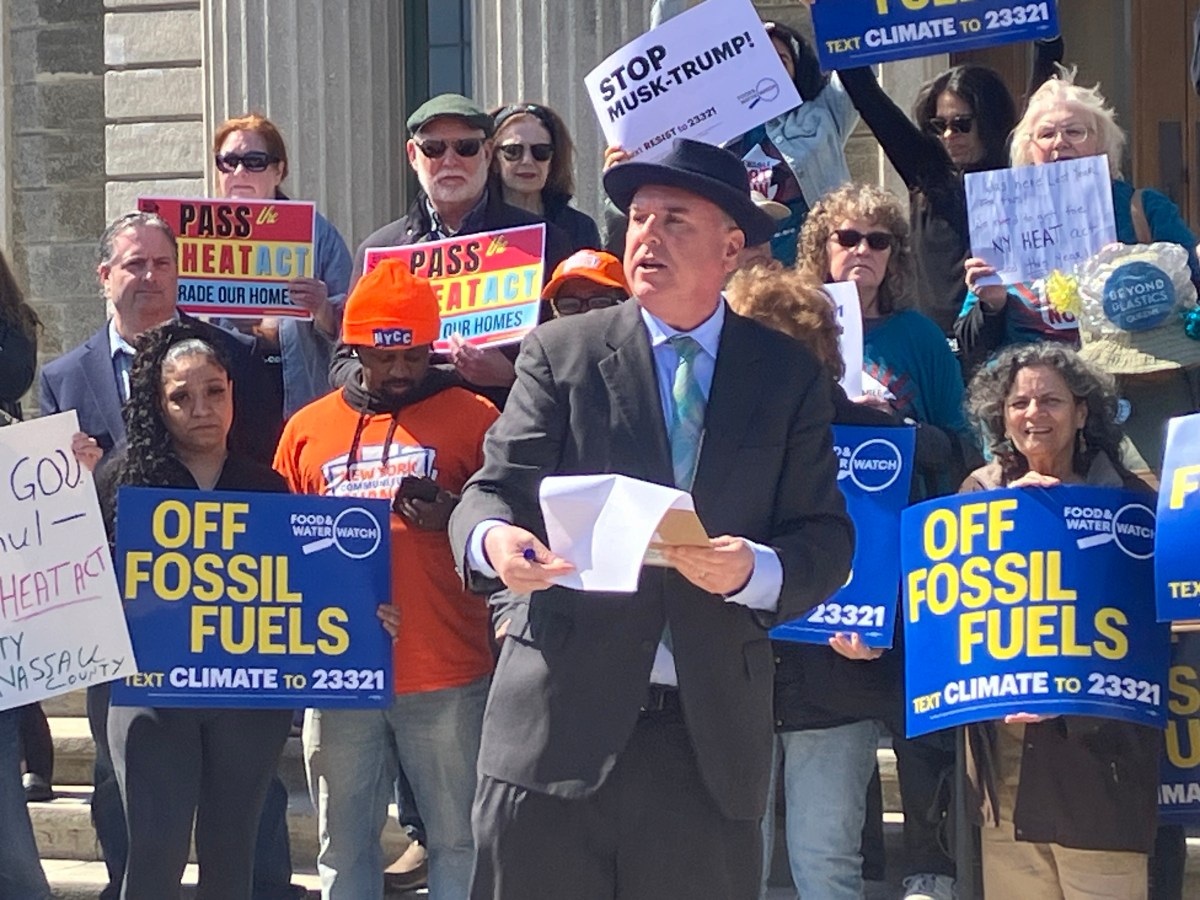New York’s State Assembly has the chance to pass a law that would cap home energy costs and reduce the state’s reliance on fossil fuels.
Climate advocates and social justice organizations are pushing for them to act.
The bill, which is called the New York Home Energy Affordable Transition Act and typically referred to as the HEAT Act, was passed by the state Senate as a stand-alone bill in 2023 and 2024 and was included in the Senate’s budget proposal this year.
But despite being introduced in the Assembly in each of those years, the act has never passed. This year it was introduced again in the chamber, but currently remains in committee, which means members have not been given the opportunity to hold a floor vote on it.
If passed by the Senate and Assembly, the HEAT Act would cap energy bills, such as those from Con Edison, National Grid and other similar suppliers, at 6% of New Yorkers’ income. According to Renewable Heat Now, a climate action campaign group, this would reduce energy costs by an average of $136 a month for one in four Long Island households.
It would also redirect around $28 billion for future spending on new gas pipes to renewable or clean energy upgrades and end a rule that requires households living within 100 feet of new gas hookups to pay a fee to subsidize them, according to the group.
However, Republican members of both chambers have said they oppose the act because they say it will end up increasing energy costs for certain households in the state and could result in job loss for natural gas workers.
“The HEAT Act is another example of an unrealistic energy policy that New York residents and businesses cannot afford,” State Sen. Patrick Gallivan, an opponent of the act, said in a statement. “This bill is expensive, and it will reduce jobs as well as consumer choice.”
Activists who rallied in front of Mineola’s Executive and Legislative Building in late March said they believe the environmental impacts of the act are critical for climate action.
“In Long Island, we’re facing an affordability crisis and a climate crisis. The New York HEAT Act is a solution to both of those crises,” Eric Waltman, a senior organizer with environmental nonprofit Food and Water Watch, said. “It both addresses the enormously high bills that we’re facing, and it reduces our reliance on the dirty fossil fuels fueling the climate crisis.”
Waltman said he attributes the act not passing in the Assembly to a lack of leadership.
“We’ve seen the Senate consistently supporting the bill, passing the bill over the years, including it in their budget,” Waltman said. “In the Assembly, it’s a failure of taking responsibility for addressing the concrete needs of people here on Long Island who are dealing with both the crisis of affordability and climate change.”
Members of New York Communities for Change, a social justice nonprofit, also spoke in support of the bill at the late March rally, emphasizing the importance of the bill for non-white and low income families on Long Island.
“We want clean energy. It will save us money in our pockets, and it saves our lives,” said organizer William Bailey, who emphasized the impact of environmental racism in communities of color that he thinks were exacerbated by the state’s use of fossil fuels. “We’ve been part of this campaign for over a year now, and we want to get it passed. We just need the Assembly to do their part.”
There is currently no set date for a vote on the HEAT Act in the Assembly.

































